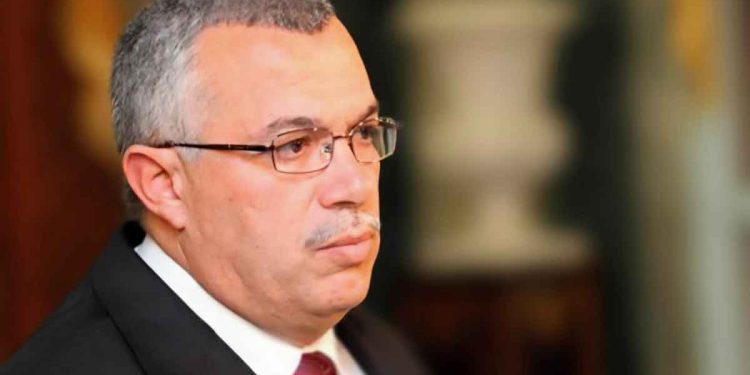A Tunisian appeals court has upheld a previous ruling, issued in October, sentencing former Justice Minister and Ennahda party leader Noureddine Bhiri to 10 years in prison for sharing a social media post in which he allegedly called for protests on the anniversary of the 14 January revolution.
According to his legal team, the ruling was issued without oral pleadings, despite a formal request to postpone the hearing following the submission of a complaint alleging “forgery”. This has raised serious concerns about the integrity of judicial proceedings and the extent to which the right to a fair trial is being respected.
Bhiri, who has been detained for over a year, denies authoring the post in question through his lawyers. His defence maintains that the charges are politically motivated, targeting him as one of the most prominent opponents of current President Kais Saied.
Bhiri has previously faced a separate 15-year prison sentence, as well as a third sentence of 43 years in a case known as the “Conspiracy Against State Security”. In that case, he was accused of serious offences, including “forming a terrorist group” and “committing a heinous act against the head of state”.
An arrest warrant has also been issued against him in connection with another case involving the alleged fabrication of passports for foreign nationals during his tenure as Minister of Justice in 2013.
The escalation of charges and sentences against Bhiri and other opposition figures forms part of the broader political context in Tunisia since President Saied’s declaration of exceptional measures in July 2021.
Since Saied’s moves, which included the dissolution of parliament and the Supreme Judicial Council, and the suspension of parts of the constitution, Tunisia has seen a marked decline in civil liberties. A wave of arrests has targeted prominent opposition figures, including Rached Ghannouchi (83), who was sentenced to 22 years in prison, and former Prime Minister Ali Laarayedh, who received a 34-year sentence.
Bhiri’s trial has lacked basic legal safeguards, amid increasing use of the judiciary as a tool to eliminate political opponents. Minimum standards for a fair trial—such as public hearings, the right to defence, presumption of innocence, and judicial independence—have been notably absent.
While in prison, Bhiri undertook several hunger strikes in protest against his detention, one of which lasted 20 days and led to a serious deterioration in his health. Human rights organisations were compelled to intervene, urging him to end the strike to preserve his life. His legal team has also filed a complaint against the security forces that detained him, accusing them of torture, citing alleged physical abuse that resulted in fractures.
Detaining an individual for peaceful expression, such as publishing a post or calling for a protest, constitutes a clear violation of the right to freedom of expression and assembly, rights enshrined in the International Covenant on Civil and Political Rights, to which Tunisia is a signatory.
Furthermore, levelling serious charges such as “terrorism” or “conspiracy against state security” without presenting documented evidence or providing adequate defence guarantees is a grave breach of the rule of law. The use of the judiciary to prosecute political opponents is a form of repression that undermines the foundations of democracy and drives the country further into authoritarianism.


























